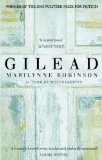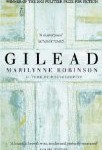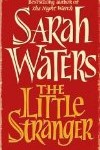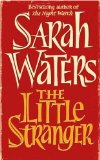
Winner of the Pulitzer Prize 2005
Gilead is entirely made up of a letter from an old man, nearing death, to his young son. The letter aims to let the boy know about his life, and to teach him all the important lessons that he would like his son to know.
I’m afraid this is one of those quiet, observational books which I do not enjoy. It is beautifully written, but there is no plot, and as the old man’s thoughts meandered around I quickly lost interest.
I remember a slice of moon, no more than that. It was a very clear night, or morning, very still, and then there was such energy in the things transpiring among those trees, like a storm, like travail. I stood there a little out of range, and I thought, It is all still new to me. I have lived my life on the prairie and a line of oak trees can still astonish me.
I also found the first person narrative to be quite annoying – don’t ask me why – it is just one of those things which I dislike when reading!
The book is packed with religious quotes. The old man was a preacher, and so almost all of his thoughts are backed up with quotes from the bible. If you like reading Christian books, then this will be an added bonus for you, but I’m afraid it was an added irritant for me.
Overall, I’m afraid this just wasn’t for me.
If you enjoy reading gentle wisdom, in beautifully written prose, and don’t mind when books have no plot, then you’ll love it.
![]()
I read this in preparation for reading Home, which has been short listed for the Orange Prize this year. Is the writing style of Home similar to this?
I think this is the most disappointing Pulitzer winner I have read so far. Which Pulitzer winner have you found disappointing?










